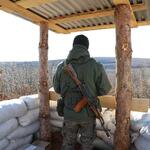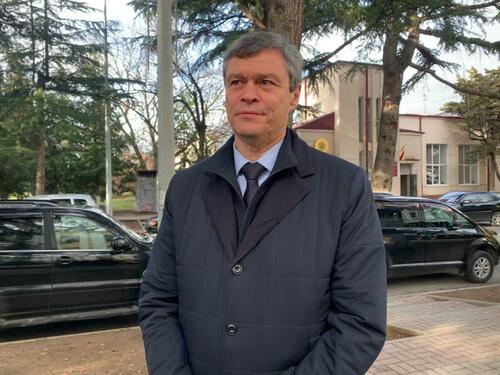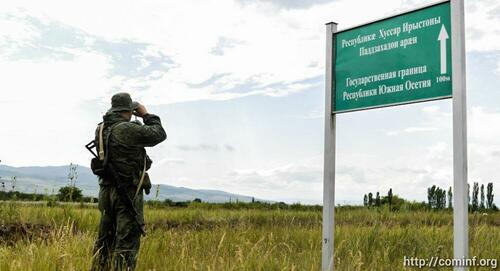The South Ossetian authorities, within the framework of the Incident Prevention and Response Mechanism (IPRM), demanded that Georgia remove its police post from the territory of the Uista village of the Republic. This was reported to journalists by the head of the South Ossetian delegation, Yegor Kochiev.
"The main issue discussed was related to the escalation of tension around the village of Uista in Znaur district. This began with the deployment of the Georgian police post on our territory. We always propose to defuse this situation and the detente should begin with a police post - this is our condition, from which we do not deviate. All this should start with the fact that the Georgian police post should be removed. And after that it will be possible to talk about the future fate around the state border, "Kochiev said.
According to him, the presence of the post creates a tense atmosphere. In addition, Georgian policemen are building up their forces in Znaur district. In addition to the post, several strongholds have been built. One of them is also located on the territory of South Ossetia - at a height above the post, two more strongholds are in close proximity to the state border. "And we pointed out all these facts at the meeting. We understand that the escalation process is not fast, but there is hope that we will be able to defuse the situation in the area," Kochiev said.
So far, no response has been received from the Georgian party regarding the removal of the post.
Also, the South Ossetian party drew the attention of the Georgian representatives to violations of the state border by Georgian citizens, including police officers. "If, say, citizens do not know where the state border passes, because there is no equipment there, then the Georgian policemen know very well where the state border line passes, we consider each entry into the territory of South Ossetia a provocation, because the violators are armed policemen. They were warned that if violations continued, then the appropriate response would be from the border guard service of South Ossetia, "Kochiev said. As for violations by ordinary citizens, then, as a rule, due to ignorance, they are expelled from the territory of the Republic without penalties. If they are suspected of some kind of violation, then law enforcement agencies are involved in solving the case.
The next IPRM meeting is scheduled for 23 April.
IPRM meetings
IPRM meetings are held on a regular basis since 2009. They are attended by representatives of South Ossetia, Russia and Georgia, with the mediation of the OSCE and the European Union.
On August 29, 2019, the delegation of South Ossetia demanded to remove the illegal, in the opinion of the South Ossetian party, Georgian checkpoint, on the border in the area of the South Ossetian village of Uista, and left the meeting because of Georgia's refusal to compromise. Later, the parties held seven technical meetings, where the only issue was the Georgian checkpoint, during which they also did not come to a compromise.t Following the seventh meeting, Kochiev has noted, that South Ossetia will resume negotiations on the situation on the border after the Georgian party presents concrete proposals acceptable to the South Ossetian party.
In July last year, South Ossetia resumed negotiations in the IPRM format. According to Kochiev, the main reason for this was the aggravation of the situation on the border, which led to the shooting.
International discussions on security and stability in Transcaucasia are held in Geneva since 2008 with the participation of Russia, Abkhazia, South Ossetia and the United States, with the mediation the UN, EU and OSCE special representatives. The work is carried out in working groups - on security and on humanitarian issues. The Geneva discussions remain the only platform for dialogue between Sukhum, Tskhinval and Tbilisi. The co-chairs of the Geneva International Discussions on Security in Transcaucasia are Toivo Klaar (EU), Rudolf Michalka (OSCE) and Cihan Sultanoglu (UN).






